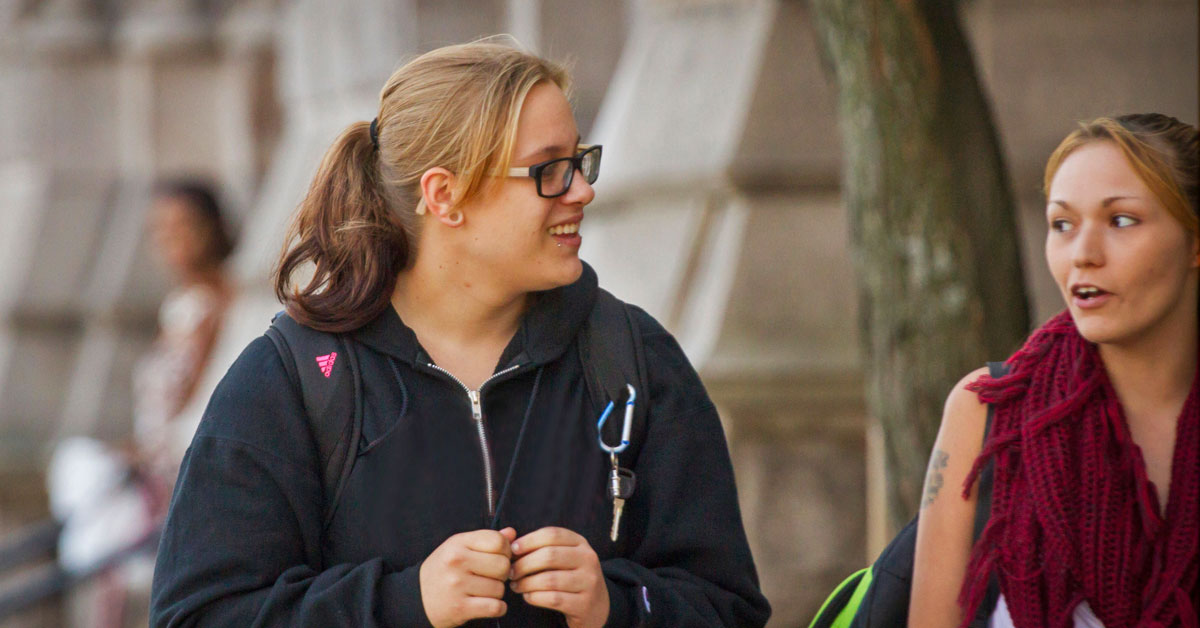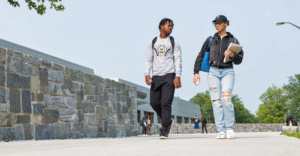
Across the world, more than 200 million people have been diagnosed with COVID-19 with more than 4.2 million reported deaths. Health impacts are also present even for those who have not been ill with COVID-19. The stress, isolation, and anxiety of the pandemic has also driven a dramatic increase in mental health struggles, especially among the college-aged population.
According to a CDC survey, the rates of college-age adults (ages 18-24) contemplating suicide has increased—in 2018, one in 10 college-age adults nationally contemplated suicide, and during the first wave of the pandemic, that grew to one in four college-age adults nationally this past June.
A variety of services available at #SUNY ensure all students have access to #MentalHealth support at all times, cut wait times for in-person counseling, and train students to know the signs and offer support to a student in need. Mental Health Matters for everyone. Learn more:
— SUNY – The State University of New York (@SUNY) July 24, 2021
Yet, even before the pandemic hit, mental health has been a concern across college campuses. According to Active Minds, 39 percent of students in college experience significant mental health issues. To help address this once-in-a-generation health crisis, that is still producing alarming rates of depression, anxiety, and social isolation among students, the State University of New York is helping its campuses make use of a $24M grant through the federal American Rescue Plan to expand and enhance mental health services.
The funding will go toward expanding outreach and support programs such as training additional student-facing residential staff to aid in identifying warning signs and how to refer students to services; expanding SUNY’s Crisis Text Line, Peer-to-Peer hotlines, and campus student counseling networks; and creating safe spaces for students.
Students across SUNY’s 64 colleges and universities will be able to seek out the expanded resources in a way that best fits into their schedule, with the ability to schedule appointments and receive help in a more timely manner. In doing so, SUNY is committed to fostering a culture of compassion, underscoring the importance of taking care of one’s mental health.
Danielle Benedetto, a dance and kinesiology major at SUNY Brockport, who is also an orientation leader, peer mentor, and admissions assistant, understands how important it is for students to focus on their mental health.
“You want to be both physically and mentally as sound as possible,” Benedetto said. “A lot of students take multiple classes on top of being in clubs and different organizations and holding so many roles on campus. I think it’s really important to get the help we need so we can continue to do everything we love on campus.”
Benedetto takes her campus roles seriously, and says it’s her job to let new students know how they can seek help.
“Whether it’s through the academic success center or the health center and having counseling—we have a psychiatrist that comes every week and therapists who are there every day,” Benedetto said.
She shared that sometimes students don’t seek help on campus because they don’t know where to go. “Or they don’t want to ask for help,” Benedetto said. Her main goal is to help reduce the stigma surrounding seeking mental health, specifically that men don’t have mental health issues, and especially when it comes to athletes. She does this in part by helping students move beyond their fears and reach out to find someone to talk to.
At SUNY, the system had already worked on expanding mental health and wellness services in Fall 2020 and Spring 2021 that students could utilize during their moments of need, such as Thriving Campus; Tele-Counseling Services; the #ReachOutSUNY social media campaign; the Question, Persuade, Refer training program; and expansion of professional services. Additionally, SUNY launched the Student Mental Health Peer Advocates Training Program and convened a Student Mental Health and Wellness Task Force to gather feedback from the student body and provide recommendations to SUNY’s Board of Trustees.
All these efforts and initiatives have been set into motion to help SUNY students know their mental health is a priority, and that they can find the care that best suits their needs. To thrive in their studies and as young adults, mental health must be taken seriously by each campus, and resources must be made easily available to all. Thanks to this historic federal funding, SUNY System is taking the necessary steps forward to make sure that every single member of our student body has access to a wide range of services, regardless of whether they’re in crisis or need a safe space to process the daily stressors of a college student.




Also study/work from home creates its own negative effects on mental health. Being a social animal humans can’t live without face to face interactions and social learning process. But I think this issue may affect less to toddlers (future gen) who just started their schools from home.